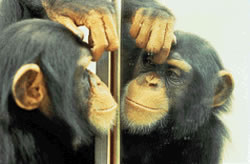Myth, Solidarity, and Post-Liberalism
With the rise of reactionary politics across the globe, it is arguably increasingly important for the academic community to give consideration to the prospects of developing and strengthening solidarity across apparent religious, political and economic differences. In this podcast, Chris speaks to Dr Timothy Stacey (University of Ottawa) about his forthcoming book, Myth and Solidarity in the Modern World: Beyond Religious and Political Division (Routledge, 2018), in which he asks how we can begin to imagine solidarity in the modern world, and challenges academics to be challenge the co-option of their work by being "better than those who seek to co-opt us."
What is solidarity? What is liberalism? And post-liberalism? How does this relate to the problematic notion of post-secularity? To myth? To the 'sacred'? And are we missing a trick by not paying attention to the mythic elements of secularity? These questions and more provide the narrative hooks throughout this interview, in which we hear some fascinating insights into Tim's personal biography and his extensive field research in London, and challenge the aversion which some social scientists feel regarding normativity.
If you like what you hear, why not check out our previous podcasts on "The Sacred", "The Post-Secular" and "Habermas, Religion and the Post-Secular", as well as Tim's ongoing Lived Religions Project with Fernande Pool, featuring many fascinating "interviews with ordinary people telling their unique story" livedreligionproject.com
Drone Metal Mysticism
In this interview, Owen Coggins joins us to talk about the use of religious (and sacrilegious) language and imagery in Drone Metal, a genre which stretches metal to low, slow, repetitive extremes. Drawing on the work of Michel de Certeau, he tells David Robertson that the prevalence of language relating to mysticism and "spiritual experience" may be due to the genre's focus on the physicality of the musical experience. Expanding out to discuss other forms of popular music which exhibit these modes of engagement, the conversation moves to consider how this case-study might open up new ways to engage with religious ideas in popular culture, and in other practices involving extreme states of bodily consciousness.
This interview was recorded at the Open University's Contemporary Religion in Historical Perspective: Publics and Performances conference in Milton Keynes, Feb 19-21 2018.
Why do we believe? Evolution, Primates, and the Human Niche
"Humans can see the world around them, imagine how it might be different, and translate those imaginings into reality…or at least try to. Humans believe. Meaning, imagination, and hope are as central to the human story as are bones, genes, and ecologies. Neither selfish aggression nor peaceful altruism dominates human behavior as a whole. We are a species distinguished by our extraordinary capacity for creative cooperation, our ability to imagine possibilities and to make them material, and our powerful aptitudes for belief, hope, and cruelty." So begins the abstract for Agustín Fuentes' 2018 Gifford Lecture series at the University of Edinburgh on the topic "Why We Believe: evolution, making meaning, and the development of human natures."
In this wide-ranging interview, Chris and Professor Fuentes discuss the themes of the lecture series, the intersections of research on human evolution, ethnoprimatology, and human nature, with the study of religion more generally, the Planet of the Apes films, and more. Along the way, important distinctions are made between specific "beliefs", "belief systems" and the human "capacity to believe", and we ask some important questions about the future.
All six lectures in the series were filmed, and are available by clicking here.
Stereotyping Religion: Critical Approaches to Pervasive Cliches
"Religions are belief systems", "Religions are intrinsically violent", "Religion is Bullshit"... these are just some of the pervasive cliches that we might hear from time to time in the English-speaking world about our central topic of discussion on the RSP, 'religion'. In this podcast, Chris is joined by Brad Stoddard and Craig Martin, the editors of the recently published Stereotyping Religion: Critiquing Cliches (Bloomsbury, 2017) to discuss these cliches, the ideological work that they do, how scholars could and should approach them, the construction of the book, and more.
Many thanks to Bloomsbury Publishing for making this recording possible. The other cliches addressed in the book and/or covered in the podcast include:
* "Religion Makes People Moral"
* "Religion Concerns the Transcendent"
* "Religion is a Private Matter"
* "Religions are Mutually Exclusive"
* "I'm Spiritual but Not Religious"
* "Learning about Religion Leads to Tolerance"
* "Everyone has a Faith"
You can find a full list of contributors, and more about the book, on the publisher's website: HERE.
Situating Religion within Justice
In this podcast Professor Joe Bulbulia of Auckland University speaks to Thomas White about situating the study of religion within a broader concept of ‘justice’. Bulbulia calls ‘religion and spirituality those features of nature [in the biocultural sense of the word] that combine to cultivate a sense of justice in people’.
Bulbulia argues that common across human societies are conceptions of obligation and responsibility: what is owed to others, and what is owed back in return. These sensibilities locate within a complex combination of institutions, traditions, texts, stories, habits, rituals, rules of etiquette, laws and conventions, abstract ideals, and beliefs in God(s) – though this list is not exhaustive! Moreover, beliefs regarding what is owed to the Gods, and what the Gods owe us, is often foundational to these biocultural features of ‘justice’.
Here ‘justice’ is not synonymous with the ‘good’ or what is ethical. Bulbulia points out societies that have supported slavery or genocide still mapped their behaviour to an understanding of what they ought and ought not do. Situating religion within a concept of justice is not, therefore, a response to a Marxian or Nietzschean suspicion of religion. Instead it explores how or where religious beliefs and practices sit behind the establishment and maintenance of social norms, whatever their moral virtue. Bulbulia argues this framing for the study of religion not only better explains why religious and secular people often make common cause against other religious and secular people, it emphasises the study of religion as integral to a principal aim of the human sciences: working out how and why people behave the way they do.
From Static Categories to a River of Theories: “The Myth of Disenchantment”
Dr. Josephson-Storm's first book, "The Invention of Religion in Japan," discussed how, after Commodore Perry forcibly opened Japan to Europeans and Americans in 1853, the Meiji intelligentsia and government remade their country along Western lines. This meant inventing a term, shukyo, that was roughly analogous to the Western word "religion." In other words, an artificial delineation between spiritual practices and other parts of society was introduced to Japan, as part of the quest to be "modern." Another key aspect of religious modernization was the delineation of "proper" religions from "superstition" and "magic."
Meanwhile, Japanese intellectuals who visited America and Europe realized that the Westerners were not as objective or rational — that is, disenchanted — as they claimed. In fact, many Americans and Europeans believed in Spiritualism, occultism, Theosophy, mesmerism, magnetism, herbal medicine, and other things that didn't conform with proper religion (i.e., Christianity). "The Myth of Disenchantment," Josephson-Storm's second book, argues that, although Westerners conceived of a philosophical triad — science and Christianity in opposition to magic/Spiritualism/etc. — the triad obscured the ways in which people interacted with each other and blended religion, "magic," and science. There were, and are, many strands of people with varying approaches to religion and modernity. In our interview, Josephson-Storm and I agree that (based on Josephson-Storm's research) Western intellectual history is more like a river, with many concepts colliding with each other, than a stable triad or other spatial metaphor. Josephson-Storm argues that it is wrong to assume that the West has progressed beyond myth or magic; it is wrong to assume that religion never influences scientists; and it is wrong to think that major scientific figures avoided occultism, esotericism, Christianity, or other religious traditions.
We also discuss where we go in the study of religion, and in philosophy generally, in the wake of postmodernism. To interrogate categories like "religion" and "magic" and show their intellectual genealogy, as Josephson-Storm does, is to act in the vein of postmodernism, deconstruction, and other forms of critical theory / Continental Philosophy. But where do we go next? How do we frame our lives, since we cannot deconstruct things forever? Josephson-Storm proposes that we admit the constant reconstruction and manipulation of narratives, so that, instead of getting hung up on flawed categories of modernization or ripping apart arguments infinitely (beware fake news), we admit the world is filled with dynamic tension. If the past way of studying "civilized" religion versus "primitive" magic is wrong, and if we are honest about our personal biases and the limits of objectivity, then we might achieve a world that is more tolerant of different religions and a world in which scholars produce unconventional, but more accurate, studies of religion.
Worldviews and Ways of Life
Ann Taves joins us to discuss her work arguing that we should study religions under the broader rubric of "worldviews" and "ways of life". This ambitious interdisciplinary project aims to place a micro-level analysis of individual worldviews into a broader evolutionary perspective. Through case-studies (including 'secular' worldviews like Alcoholics Anonymous alongside more traditional 'religions'), she explains how worldviews form in response to existential 'Big Questions' - here understood as core biological needs and goals, rather than theological or moral concerns - and are enacted in Ways of Life, individually or collectively.
This interview summarizes her Gunning Lectures, delivered at the University of Edinburgh, 19-21 March 2018.
Muslim Superheroes
A. Dave Lewis joins us again for a discussion of representations of Muslims in superhero comics. We talk about some positive representations, like Kamala Khan, Marvel's new Ms Marvel, and some less-than-positive portrayals, like Frank Millar's Holy Terror! We talk about American comics as a product of the immigrant experience, and how comics made by Muslims play with the conventions of the genre. And we talk about how to use these texts in the classroom, as a powerful tool for exploring representation, media and religion. And what is the "wormhole sacred"?
“Soka Gakkai, Kōmeitō and the religious voices of Japan’s political arena
 Throughout Japanese history, religion has always coloured and influenced the matters of the state. Religious validation of imperialist aggression and Japan’s war efforts in the first half of the 20th century is just one example of this. Japanese religious institutions entered the post-war period with the ethically problematic baggage of war. Promulgation of Japan’s post-war constitution – which introduced a legal separation of religion and the state, demilitarisation of Japan and freedom of religion – opened a new chapter of a supposedly pacifist and secular political system. Religion was relegated to an individual citizen’s private prerogative. However, we are still talking about religion and politics in Japan today.
Throughout Japanese history, religion has always coloured and influenced the matters of the state. Religious validation of imperialist aggression and Japan’s war efforts in the first half of the 20th century is just one example of this. Japanese religious institutions entered the post-war period with the ethically problematic baggage of war. Promulgation of Japan’s post-war constitution – which introduced a legal separation of religion and the state, demilitarisation of Japan and freedom of religion – opened a new chapter of a supposedly pacifist and secular political system. Religion was relegated to an individual citizen’s private prerogative. However, we are still talking about religion and politics in Japan today.
Many of the post-war controversies over perceived transgressions between religion, politics and the state have centred on Yasukuni Shrine in Tokyo, which enshrines the souls of Japan’s war dead. Yasukuni Shrine has long been a symbol of Japanese nationalism, with many right-wing factions advocating for nationalising the shrine. A nationalisation movement began in the 1960s and resulted in lawsuits over the involvement of local and national level politicians and governments in rituals held there. Although debates over Yasukuni shrine as a symbol of Japan’s past militarism and fanatic nationalism fuelled by the ideology of state Shinto tend to dominate public and scholarly discourses on conflation of religion and politics, there are many other examples of the ways religion continues to influence Japan’s political life. These include acts of violence and domestic terrorism perpetrated by the new religious movement Aum Shinrikyō in 1995; anti-nuclear activism of religious studies scholars and religious practitioners in the aftermath of Fukushima Daiichi nuclear disaster in 2011; and the formation of political representation of religious groups, such as the case of Soka Gakkai and Kōmeitō party in 1964 and their significance in the run-up to the Japanese 2017 general elections.
 Why should we continue talking about religion and politics in a country that has a constitutional separation of religion and the state? What is the significance of Kōmeitō in Japanese politics today? I asked Levi McLaughlin, who is an Associate Professor at the Department of Philosophy and Religious Studies at North Carolina State University to talk religion and politics in Japan in the context of his research on Soka Gakkai, one of Japan’s largest lay Buddhist organisations. It is also referred to as one of Japan’s most influential and politically engaged (I dare say) new religions. Levi is a co-author and co-editor of “Kōmeitō: Politics and Religion inJapan” (IEAS Berkeley, 2014), and his new book “Soka Gakkai’s Human Revolution: The Rise of Mimetic Nation” is forthcoming from the University of Hawai’i Press in late 2018.
Why should we continue talking about religion and politics in a country that has a constitutional separation of religion and the state? What is the significance of Kōmeitō in Japanese politics today? I asked Levi McLaughlin, who is an Associate Professor at the Department of Philosophy and Religious Studies at North Carolina State University to talk religion and politics in Japan in the context of his research on Soka Gakkai, one of Japan’s largest lay Buddhist organisations. It is also referred to as one of Japan’s most influential and politically engaged (I dare say) new religions. Levi is a co-author and co-editor of “Kōmeitō: Politics and Religion inJapan” (IEAS Berkeley, 2014), and his new book “Soka Gakkai’s Human Revolution: The Rise of Mimetic Nation” is forthcoming from the University of Hawai’i Press in late 2018.
Spirituality
To discuss 'spirituality', we are joined by Boaz Huss and Steven Sutcliffe. We discuss the genealogy of 'spirituality', and its contemporary significance, with particular reference to the New Age movement. The second half focuses on how spirituality may trouble the religion / secular distinction, and its implications for the critical study of religion.
'Spirituality' is a term with enormous currency in contemporary discourse on religion, but despite this, it remains under-theorised. Little consideration is given to its development, and most scholarly work simply dismisses 'spirituality' as shallow and commercialised. Boaz Huss argues that "the vehement and disparaging criticism of contemporary spirituality is stimulated by the threat that this new cultural category poses to entrenched scholarly assumptions and research practices" (2014: 58).
To discuss 'spirituality', we are joined by Boaz Huss and Steven Sutcliffe. We discuss the genealogy of 'spirituality', and its contemporary significance, with particular reference to the New Age movement. The second half focuses on how spirituality may trouble the religion / secular distinction, and its implications for the critical study of religion.





